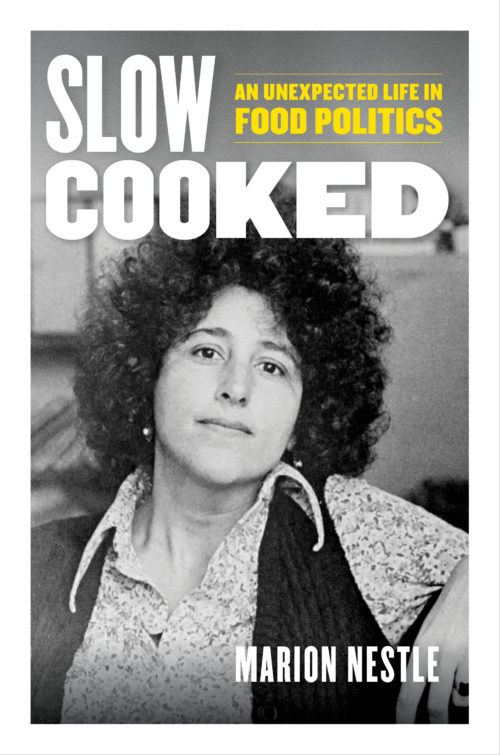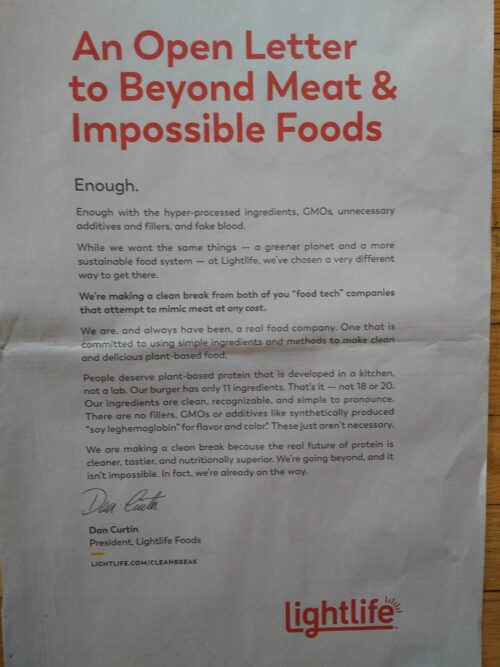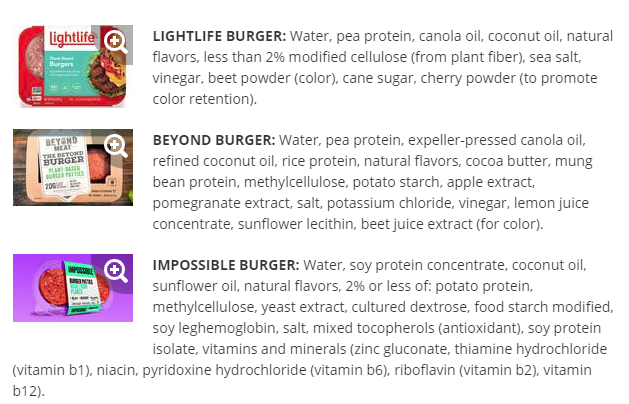Slow Cooked: An Unexpected Life in Food Politics
Published October 4, 2022.

Ordering options: Amazon, Barnes & Noble Bookshop IndieBound Powell’s UC Press
Overview: Marion Nestle reflects on her late-in-life career as a world-renowned food politics expert, public health advocate, and founder of the field of food studies following decades of low expectations.
Description: In this engrossing memoir, Marion Nestle reflects on how she achieved late-in-life success as a leading advocate for healthier and more sustainable diets. Slow Cooked tells the story of how she built an unparalleled career at a time when few women worked in the sciences, and came to recognize and reveal the enormous influence of the food industry on our dietary choices.
By the time Marion obtained her doctorate in molecular biology, she had been married since the age of nineteen, dropped out of college, worked as a lab technician, divorced, and become a stay-at-home mom with two children. That’s when she got started. Slow Cooked charts Marion’s astonishing rise from bench scientist to the pinnacles of academia, how she overcame the barriers and biases women of her generation faced, and how she found her life’s purpose after age fifty. Slow Cooked tells her personal story—one that is deeply relevant to everyone who eats and to anyone who thinks it might be too late to follow a passion.
The blurbs
- “Marion Nestle is one of my heroes. After reading her riveting memoir, I admire her more than ever. She is one of the most important voices in the food world, and in this book she gets personal for the first time.”—Ruth Reichl, former editor of Gourmet Magazine
- “Marion Nestle is a national treasure, and now you can learn how she came to be. Just like Nestle herself, this beautiful memoir is thoughtful, generous, unstinting, and deeply committed to learning from the past to build a better world.”—Raj Patel, author of Stuffed and Starved: The Hidden Battle for the World Food System
- “I have always had such admiration for Marion Nestle: she is one of our nation’s shrewdest thinkers and has transformed the way all of us think about public health, the industrial food industry, nutrition, and the future of food. With this extraordinary book, I see for the first time how she became the clear-eyed, indefatigable warrior that she is. Her radical self-reflection and honesty is deeply moving—and in telling her life’’s story, Marion is forging a path for the next generation of food activists.”—Alice Waters, chef, author, food activist, and founder of Chez Panisse restaurant
- “Marion Nestle is a brilliant, courageous champion of healthy food, social justice, and scientific integrity. This poignant and inspiring book tells us how she came to be that way.”—Eric Schlosser, author of Fast Food Nation: The Dark Side of the All-American Meal
- “Extraordinary! Nestle’s story moves me, heart and soul. I have long admired her leadership in awakening us to the crisis of our corporate-corrupted food system. In this work, however, she offers hope in the capacity of humans to transform obstacles and denigration into opportunity and dignity. She shares a gripping, very personal story that will help us discover our own courage. Just what’s needed now more than ever.”—Frances Moore Lappé, cofounder of Small Planet Institute
Media
2022
Aug 15 Kirkus Reviews: (p. 154) “An impassioned reminder to never stop pursuing your interests.”
Sept 6 A review on Twitter from Parke Wilde (US Food Policy): “delightful, personable, and fearlessly open about parents, husbands, university politics, sexism, racism, famous and ordinary people, all before we even get to the influential career in food politics.”
Sept 21 MOFAD Launch event, announcement in the New York Times (at bottom)
Sept 21 Civil Eats interview about Slow Cooked
Sept 27 Review in Forbes: ” “Slow Cooked” is a delight. It’s safe to say that contemporary food studies would probably not exist without the efforts of Nestle, or it if it did, it would resemble the shallow pop culture dreck of the Food Network.”
Oct 9 Excerpt published by Blue Zones: The birth of Food Politics.
Oct 13 Interview with Sam Reiss, GQ: How Marion Nestle changed the way we talk about food
Oct 27 NYU press announcement
Nov 7 Forbes’ The 30 Best Food And Sustainability Gifts Of 2022
Nov 10 Zibby Mag’s Best Books for those Closest to You
Dec 4 Review in New York Times Book Review’s Shortlist
Dec 23 Deborah Grayon’s review in Worth
Winter 2022/2023 Mike Miller’s review in Social Policy: Boss Marion
2023
Jan 1 Jennifer Wilkins’ review of Slow Cooked. J Nutr Educ Behavior. 2023;55(1):81-82. DOI:https://doi.org/10.1016/j.jneb.2022.11.001
Jan 3 De memoires van ‘voedselstrijder’ Marion Nestle. FoodLog (in Dutch)
Feb 15 A Tweet from UC Press on my six books with them for International Day for Women and Girls in Science
April 7 Review by Serge Hercberg in the American Journal of Public Health






